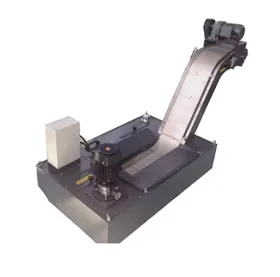flexible corrugated pvc conduit
Flexible Corrugated PVC Conduit An Overview
In the world of electrical installation and wiring solutions, flexible corrugated PVC conduit has emerged as a vital component. This innovative product is widely used due to its numerous advantages, including flexibility, durability, and resistance to various environmental factors. Understanding the properties and applications of flexible corrugated PVC conduit is critical for both professionals in the industry and those undertaking DIY projects.
What is Flexible Corrugated PVC Conduit?
Flexible corrugated PVC conduit is a type of electrical conduit made from polyvinyl chloride (PVC). It is characterized by its ribbed, corrugated surface, which not only enhances its flexibility but also improves its ability to withstand mechanical stress and deformation. This conduit can be bent and shaped easily, allowing it to navigate around obstacles without the need for additional fittings. This makes it an ideal choice for a variety of applications, especially in confined spaces where traditional rigid conduit would be difficult to install.
Key Properties and Benefits
1. Flexibility As the name suggests, flexible corrugated PVC conduit offers a high degree of flexibility. This allows for easy installation in complex routing scenarios, such as in machinery, electrical cabinets, and residential wiring. It can be shaped to fit tight corners and contours, reducing the need for multiple connectors and joints.
2. Chemical Resistance PVC has inherent resistance to many chemicals, making this conduit suitable for industrial environments where exposure to oil, solvents, and other corrosive substances may occur. This characteristic extends the lifespan of the conduit and the wiring it protects.
3. Lightweight Compared to metal conduits, flexible corrugated PVC is notably lightweight, making it easier to handle and install. This feature is advantageous for contractors and electricians working on large-scale projects where reducing overall weight can contribute to efficiency and cost savings.
4. Electrical Insulation PVC is a non-conductive material, which is essential for electrical applications. The conduit provides excellent electrical insulation, safeguarding cables from short circuits and electrical shocks.
5. Temperature Resistance This type of conduit can withstand a wide range of temperatures, making it suitable for both indoor and outdoor installations. However, it is important to check the manufacturer's specifications to ensure it meets the required temperature standards for specific applications.
6. Cost-Effective Flexible corrugated PVC conduit is often more affordable than metal conduits. Its low material costs, combined with ease of installation, make it a cost-effective choice for many projects.
Applications
Flexible corrugated PVC conduit is utilized in a diverse range of applications, including
flexible corrugated pvc conduit

- Residential Wiring Ideal for wiring installations in homes, especially in areas where flexibility is essential, such as attics, basements, and around kitchen appliances
.- Commercial Installations Widely used in offices, retail spaces, and industrial settings to route electrical, data, and telecommunications cables.
- Automotive Sector Commonly found in vehicles for protecting wiring harnesses due to its lightweight and flexible properties.
- Electrical Equipment Used extensively in machinery and electrical panels to protect sensitive wiring from abrasion and environmental damage.
- Outdoor Applications When UV stabilized, flexible corrugated PVC conduit can be used in outdoor installations, providing protection against weather elements.
Installation Tips
When installing flexible corrugated PVC conduit, a few key considerations can enhance your project’s success
- Use Proper Fittings Ensure that all fittings and accessories are compatible with the conduit type to maintain a secure and protective installation.
- Plan Your Route Before installation, plan the routing of the conduit to avoid unnecessary bends or obstacles. This will help to minimize cable stress and potential damage.
- Secure Properly Use appropriate clamps or straps to secure the conduit in place. This prevents movement and reduces the risk of damage over time.
Conclusion
Flexible corrugated PVC conduit is an essential tool in the modern electrical installation landscape. With its numerous benefits, including flexibility, durability, and cost-effectiveness, it has become a preferred choice for various applications. Whether you're a professional electrician or a DIY enthusiast, understanding the properties and applications of this conduit can help you make informed decisions in your projects. Its versatility and reliability promise to continue playing a significant role in electrical safety and efficiency for years to come.








